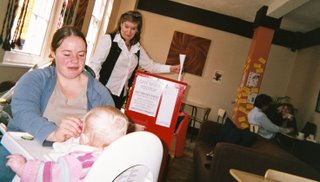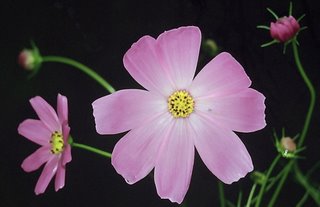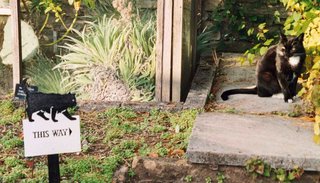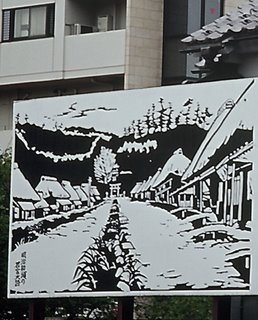Part of the ambidextrous/Soft C/Alan Summers & With Words haiku project at Newton Park campus, Bath Spa University, U.K.
Link: BroadcastLab project: Haiku with Alan Summers by Ambidextrous and Soft C (ArtsWork Bath Spa University)
Alan Summers, Japan Times Award (2002), President, United Haiku and Tanka Society, and co-founder of Call of the Page, providing literature, education & literacy projects, often based around Japanese genres. For events & workshops contact us through our Call of the Page website: Call of the Page.
Online internet courses by Call of the Page
Are you interested in a Call of the Page course? We run courses on haiku; tanka; tanka stories/prose; haibun; shahai; and other genres.
Please email Karen or Alan at our joint email address: admin@callofthepage.org
We will let you know more about these courses.
Call of the Page (Alan & Karen)
Please email Karen or Alan at our joint email address: admin@callofthepage.org
We will let you know more about these courses.
Call of the Page (Alan & Karen)
Saturday, November 25, 2006
Tuesday, October 31, 2006
24 hour haiku answerphone details, and ambidextrous & Alan Summers with even more haiku on the campus

Just leave a haiku on the answerphone! A haiku only takes six seconds to read over the phone so the cost won't be much at all!
The 24 Hour Haiku Answerphone:
mobile number 0779 4835 809
U.K. Calls charged at normal to-Orange tariff.
"The haiku answerphone: we accept calls of haiku around the clock!"
Note to American Poets:
Dialing from America: 001-44-7794-483-5809 will get you through, it only costs pennies, since a haiku is about six seconds to read.
Other American codes:
Boston 617, Chicago 312, Dallas 214, Denver 303
Houston 713, Los Angeles 213, New York 718 (Manhattan) 212
Washington DC 202
Note to Canadian Poets:
Dialing from Canada is 001:
Quebec 001-418-7794-483-5809
Toronto (Metropolitan) 001-416-7794-483-5809, 001-647-7794-483-5809
(All Other) 001-289-7794-483-5809, 001-905-7794-483-5809
Vancouver 001-604-7794-483-5809
Note to Norwegian writers; and spoken word artists:
00 + 44 + Area Code + 7794-483-5809
It can be your own go at haiku, or find one on the internet, or check out
With Words website: Click onto the more haiku at the top of each webpage to get a new haiku!

Alan's Haiku worksheet & blog at Myspace
Bath Spa University, Newton Park campus

UPDATE:
You missed a great Renga poetry & saké Party!
==========BUSES & MAPS==========
Travelling By Bus: Bright Orange buses (service 418 operated by First) runs every 20 minutes between Bath city centre and the Newton Park Campus. (A return ticket currently costs £2.50). Check it's the 418 that goes to Bath Spa, and not University of Bath. Don't ask me why they can't give them two different numbers. ;-)
FirstGroup website: South West First Group
Virtual Tour (crucifix looking building no.19): Virtual Tour
Click onto no.19 and you get a virtual tour. The room ne101 is through the door where the girl is leaving.
Bath Spa map of surrounding area
Overview of Newton Park Campus (Site Code NP) building no.29:
Newton Park Campus
Click here if you'd like a Virtual Tour of the whole of Newton Park and village etc...
Irish Poetry Night
IRISH POETRY NIGHT at The George on Woolley Street
in Bradford on Avon - 8p.m. Thursday November 16th 2006
Plenty of fantastic Irish music and poetry happening!
Poets reading the work of Irish poets are Carrie Etter, Matt Bryden (reading Paul Muldoon), Claire Crowther (reading from Medbh McGuckian and Eavan Boland), Karen Hoy (reading from Louis MacNeice), T.S. Elliot Short-listed poet Tim Liardet (reading Tom French), and Alan Summers reading Brendan Kennelly and Raglan Road to Raglan Lane.
THIS IS A VERY KEENLY ANTICIPATED EVENT
I'd recommend that you come early and get a good table!
WEBSITE FOR: The George on Woolley Street


IRISH POETRY NIGHT AT THE GEORGE
in Bradford on Avon - 8p.m. Thursday November 16th 2006
Plenty of fantastic Irish music and poetry happening!
Poets reading the work of Irish poets are Carrie Etter, Matt Bryden (reading Paul Muldoon), Claire Crowther (reading from Medbh McGuckian and Eavan Boland), Karen Hoy (reading from Louis MacNeice), T.S. Elliot Short-listed poet Tim Liardet (reading Tom French), and Alan Summers reading Brendan Kennelly and Raglan Road to Raglan Lane.
THIS IS A VERY KEENLY ANTICIPATED EVENT
I'd recommend that you come early and get a good table!
WEBSITE FOR: The George on Woolley Street


IRISH POETRY NIGHT AT THE GEORGE
Monday, August 14, 2006
National Poetry Day 2006
=========================
NATIONAL POETRY DAY 2006
=========================
NATIONAL POETRY DAY
Theme "IDENTITY"
THURSDAY OCTOBER 5TH 2006
BSL HAIKU EVENT
UNIVERSITY OF BRISTOL
This was an intimate event from 5pm to 7m
Centre for Deaf Studies
Rachel Sutton-Spence gave a talk:
"Sign Language Poetry and Deaf Identity"
which was interpreted,
followed by an analysis of a poem, and we had an exclusive on Linda Day performing for the first time, and with a haiku.
Please Click here
for more details about National Poetry Day at the Centre for Deaf Studies.
===================================================
Stand Up Poetry: The Bath Spa University Reading Series 2006-07
===================================================
Here are the readings for the upcoming academic year.
All readings are on Thursday nights beginning at 8 p.m.
and convene at The Bath Royal Literary and Scientific Institute's Duncan Room, 16-18 Queen Square, Bath. Please e-mail me (carrie dot etter at gmail dot com) if you have any questions.
Entrance fee: £6 (£4 concessions)
30 November: Fiona Sampson and John Burnside
14 December: Greta Stoddart and Penelope Shuttle
11 January 2007: Annie McGann and Philip Gross
8 February: Patrick McGuinness and Peter Porter
(No March reading on account of the Bath Literature Festival)
12 April: Richard Price and Mimi Khalvati
10 May: Lucy English and Rachel Pantechnicon
14 June: Carrie Etter and Moniza Alvi


Poetry School haiku workshop details
Also extremely highly recommended are the following
Poetry School courses in Bath this October:
Carrie Etter's The Opportunities of Form
Tim Liardet's The Poetry Surgery
NATIONAL POETRY DAY 2006
=========================
NATIONAL POETRY DAY
Theme "IDENTITY"
THURSDAY OCTOBER 5TH 2006
BSL HAIKU EVENT
UNIVERSITY OF BRISTOL
This was an intimate event from 5pm to 7m
Centre for Deaf Studies
Rachel Sutton-Spence gave a talk:
"Sign Language Poetry and Deaf Identity"
which was interpreted,
followed by an analysis of a poem, and we had an exclusive on Linda Day performing for the first time, and with a haiku.
Please Click here
for more details about National Poetry Day at the Centre for Deaf Studies.
===================================================
Stand Up Poetry: The Bath Spa University Reading Series 2006-07
===================================================
Here are the readings for the upcoming academic year.
All readings are on Thursday nights beginning at 8 p.m.
and convene at The Bath Royal Literary and Scientific Institute's Duncan Room, 16-18 Queen Square, Bath. Please e-mail me (carrie dot etter at gmail dot com) if you have any questions.
Entrance fee: £6 (£4 concessions)
30 November: Fiona Sampson and John Burnside
14 December: Greta Stoddart and Penelope Shuttle
11 January 2007: Annie McGann and Philip Gross
8 February: Patrick McGuinness and Peter Porter
(No March reading on account of the Bath Literature Festival)
12 April: Richard Price and Mimi Khalvati
10 May: Lucy English and Rachel Pantechnicon
14 June: Carrie Etter and Moniza Alvi

Poetry School haiku workshop details
Also extremely highly recommended are the following
Poetry School courses in Bath this October:
Carrie Etter's The Opportunities of Form
Tim Liardet's The Poetry Surgery
Saturday, July 22, 2006
BRISTOL POETRY FESTIVAL September 2006
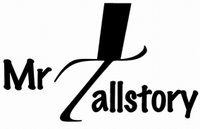
the COMPETITION Details (deadline now passed)
MR TALLSTORY read the results and entries for the competition
Bristol Old Vic Theatre
Kings Street
The Stalls Bar area
Sunday 2.15 p.m. - 2.45 p.m. 10th September 2006
Presented as part of the Bristol Poetry Festival 2006
Once upon a time in Mole Valley: Mr Tallstory's Modern Fairytale Competition
===========*============
RIPPED WORDS
Wednesday 6th September 2006
The Oppo} Coffee House
72 Park Street (wheelchair access off Park Street Avenue)
Presented as part of the Bristol Poetry Festival 2006
Many thanks to Lawrence Pettener, and to the utterly mesmerising music from Anil and Beth.
It was a great night, and made even better by all the fine guests!
RIPPED WORDS was:

Alan Summers

Lawrence Pettener

with music from Anil & Beth
Picture from Beth's blog (possibly taken by Russell?)
Anil's myspace site
Beth's myspace site
BRADFORD ON AVON ARTS FESTIVAL: poetry events including Open Mic

Bradford-on-Avon Arts Festival 2006 : BOAAF2006 WEBSITE
Bradford-on-Avon Arts Festival 2006 : BOAAF2006 pdf Brochure
POETRY READINGS & OPEN MIC information
follows after workshops information
POETRY WORKSHOPS at Ale & Porter Arts Sunday 1st October
Ale & Porter : Ale & Porter WEBSITE
Ale & Porter : multimap
Ale & Porter : Streetmap
The current exhibition: "JOURNALS" is highly recommended:
Click for more information
PUBLISHING YOUR POETRY with Carrie Etter from 10 - 12 p.m.
Carrie will be doing 20 minute tutorials on publishing poems.
Participants should bring 3-4 printed pages of poetry they'd like to publish. If you'd like any further details please feel free to e-mail carrie at:
carrie [dot] etter@gmail [dot] com

American expat Carrie Etter teaches as Associate Lecturer in Creative Writing at Bath Spa University and as a tutor for The Poetry School. She has published hundreds of poems internationally in 'The Forward Book of Poetry 2005', 'The New Republic', 'New Writing 14', 'Poetry Review', 'The Rialto', 'The Times Literary Supplement', and other journals and anthologies. Her Blog site
DEMYSTIFYING HAIKU: HOW TO WRITE AND PUBLISH HAIKU
with Alan Summers from 2 - 4 p.m.

This is a relaxed group workshop introducing haiku.
You are most welcome to bring copies of favourite haiku poems to share.
Alan Summers is a Japan Times Award-winning poet, published in over fourteen countries.
Alan is also a visiting tutor for The Poetry School.
Alan's website: WITH WORDS
WORKSHOP FEES: Both Carrie and Alan's workshops are £10 per person, with a minimum enrollment of five people.
HOW TO BOOK TICKETS
Tickets are available from the
Bradford-on-Avon Tourist Information Centre (TIC).
The Tourist Information Centre is open daily from 10 a.m. - 5 p.m.
Tel. No. 01225 865 797
email: tic@bradfordonavon.co.uk
ALE & PORTER ARTS current exhibition "JOURNALS":
Click for more information
========POETRY READING with OPEN MIC========
OPEN MIC FOR BOTH POETS & MUSICIANS
Thursday 28th September 8pm
FREE EVENT: at The George on Woolley Street
The Guest poets:
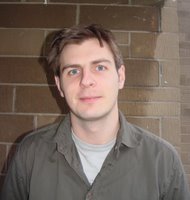
Matt Bryden teaches English as a Foreign Language in Bath and has work in current issues of The Interpreter's House and Smiths Knoll and forthcoming New Welsh Review.

American expat Carrie Etter teaches as Associate Lecturer in Creative Writing at Bath Spa University and as a tutor for The Poetry School. She has published hundreds of poems internationally in 'The Forward Book of Poetry 2005', 'The New Republic', 'New Writing 14', 'Poetry Review', 'The Rialto', 'The Times Literary Supplement', and other journals and anthologies. Her Blog

Karen Hoy is interested in human beings as part of the natural world, and this is revealed through both her film-making and her poetry readings & events. Gilded Lily Productions

Alan Summers fresh from the Bristol Poetry Festival.
"astonishingly moving haiku" and "widely known haiku poet...as dry as vintage champagne" YOMIURI SHIMBUN (Japan, and the world's largest newspaper circulation).
Alan is published in The Iron Book of British Haiku; The New Haiku; Haiku World: an international poetry almanac; Haiga - illustrated haiku poems; Haiku Anthology of the European Union, thanks to the French-Japanese Sasakawa Foundation.
OPEN MIC
Anyone interested in signing up for the OPEN MIC just tell us on the night, and don't worry, the theme isn't compulsary for you!
VENUE WEBSITE: The George on Woolley Street.
About The George Pub, described by one regular
unreconstructed and comfortable...where I can relax without any pressure and enjoy the conversation or listen to the music, whatever takes my fancy
*******************MAPs & INFO ***************************
MAPS to show Bradford-on-Avon and its Art Galleries :
Click onto the little green box and check out the Art House Co-Operative, which is opposite Ale & Porter. The Art House are still showing their Summer exhibition for a while longer: recommended.
If you are arriving by train, the first art gallery you will come across is The Bay Tree art gallery which also has a useful map on their site, and worth a visit in itself. Say hello to Jane Gibson who is the wonderful gallery owner! The Bay Tree is both close to the train station and next to the Green where the Tourist Information Centre is based. Jane's current exhibition is in full swing, and is highly recommended too!
The Bay Tree Gallery
TIC: How to get to Bradford on Avon & Parking
Map showing the George on Woolley Street Map
THE POETRY SCHOOL SPRING 2007 PROGRAMME
Haiku and Senryu: An Introduction
Date: Saturday 17 February, 2007
Time: 10.30am - 4.30pm
Tutor: Alan Summers
Level: suitable for all levels
Activity: Writing Feedback Exercises
Study Mode: One Day Workshop
Venue: Murch Room, Bath Royal Literary & Scientific Institute
This one-day workshop introduces haiku, and its sister form senryu, through discussion and exercises. Participants will learn the ‘real rules’ of these ultra-compact forms and consider their relevance to modern British poetry. We will aim to have finished poems at the end of the session, and you may bring work-in-progress to the group (please bring 16 copies).
The workshop is designed for all levels.
THE POETRY SCHOOL
To book, please download a booking form and
return it to the office.
More information can be found under booking information.
Cost: £35, £25 concs
====================================================
================ USEFUL WEBPAGES =================
====================================================
THE BATH ROYAL LITERARY & SCIENTIFIC INSTITUTE venue:
The BRLSI website
PDF FILE showing accessiblity and floor plans:
BRLSI accessibility PDF
TO FIND BRLSI: STREETMAP
Charlotte Street Long Stay Car Park is just a few minutes away from the BRLSI venue:
webpage link
Car Parking Map:
Car Parks Map - Bath webpage link
Date: Saturday 17 February, 2007
Time: 10.30am - 4.30pm
Tutor: Alan Summers
Level: suitable for all levels
Activity: Writing Feedback Exercises
Study Mode: One Day Workshop
Venue: Murch Room, Bath Royal Literary & Scientific Institute
This one-day workshop introduces haiku, and its sister form senryu, through discussion and exercises. Participants will learn the ‘real rules’ of these ultra-compact forms and consider their relevance to modern British poetry. We will aim to have finished poems at the end of the session, and you may bring work-in-progress to the group (please bring 16 copies).
The workshop is designed for all levels.
THE POETRY SCHOOL
To book, please download a booking form and
return it to the office.
More information can be found under booking information.
Cost: £35, £25 concs
====================================================
================ USEFUL WEBPAGES =================
====================================================
THE BATH ROYAL LITERARY & SCIENTIFIC INSTITUTE venue:
The BRLSI website
PDF FILE showing accessiblity and floor plans:
BRLSI accessibility PDF
TO FIND BRLSI: STREETMAP
Charlotte Street Long Stay Car Park is just a few minutes away from the BRLSI venue:
webpage link
Car Parking Map:
Car Parks Map - Bath webpage link
BRITISH SIGN LANGUAGE HAIKU FESTIVAL

British Sign Language Haiku Festival was a highly successful two-day event aimed to encourage more Deaf people to create "haiku" poems in British Sign Language.
To read more about the BSL haiku festival go to: http://www.bslhaiku.co.uk/events.html
and click here for some great BSL haiku: BSL haiku
Sponsors: University of Bristol; Centre for Deaf Studies; The Dorothy Miles Cultural Centre; Japan 21; The Great Britain Sasakawa Foundation; and With Words.

Wednesday, July 19, 2006
Claire Williamson's poetry comes to Oppo}

Claire Williamson, Arnolfini's first Visiting Writer in 2005 brings her poetry collection "RIDE ON" to Oppo} .
-----------------------------------------
Things said about RIDE ON
-----------------------------------------
"Beautiful brave writing... this poetry that is honed to a sharpness of light, bright with spirit, transcendent.”
ROSE FLINT - Arvon Foundation tutor, and broadcaster.
"These are poems with a job to do - to show how poetry can help us gain clarity and find value in some terrible passages of life. They deserve to be read.” PHILIP GROSS - Prof. of Creative Writing at Glamorgan University
“I read the poems in one reading, and came out a different person: a better person.” ALAN SUMMERS - Visiting Tutor for The Poetry School
Ride On:
http://www.clairewilliamson.co.uk/publications.html
Saturday, May 27, 2006
The Poetic Image: haiku & photography
Birmingham Words / National Academy of Writing Pamphlet 2006
Edited by Alan Summers, Roger Brown, and Will Buckingham
Cover Image: Gareth Thompson
Those images that yet fresh images beget…
W. B. Yeats
Welcome to the first in our new series of Birmingham Words pamphlets.
These pamphlets are a new venture for us, in which we are seeking to publish
high-quality new writing in a format that is accessible from anywhere in the
world.
It has been a pleasure to launch this series with the present collection, The Poetic
Image: Haiku and Photography, and to work with Alan Summers and Roger
Brown, this issue’s guest editors. What makes a poem or a photograph succeed
is hard to put your finger on. But for me at least, a poem or photograph has
the power to open up chinks in my world, to allow in a flicker of light or flame.
This collection of fleeting images will have done its work if even a single image
– whether a poem or a photograph – succeeds in catching fire in your
imagination, leading to fresh insights, new moments of clear seeing.
Will Buckingham
The Haiku.
“Today it may be possible to describe haiku but not to define it.”
Hiroaki Sato: Author, columnist, and editor of “One Hundred Frogs: From
Matsuo Basho to Allen Ginsberg” http://hiroakisato.org
“There are descriptions of haiku as there are stars in the night sky: this is mine.”
Alan Summers http://www.withwords.org.uk
Haiku are possibly the shortest, and the longest regularly written form of poetry in the world. They are of incidents of everyday proportions: whether crossing a busy road: noticing a flower in a crack of concrete; running from a downpour of rain; or just those many episodes in our lives we unknowingly share with people from other cultures and backgrounds.
Haiku can allow you to respond not only as a reader, but as a “co-poet” with the original writer. This isn’t unique to haiku but may equally be one of the defining characteristics of haiku: where we are able to experience within our own lifestyle something that links us all...the piquancy of the moment.
“For me nature is not landscape but the dynamism of visual forces - an event rather than an appearance.” Bridget Riley “Working with Nature” from “The Mind’s Eye” 1973
When I found this quote I immediately thought of Basho and one of his most famous haikai verses (Basho wrote before the term haiku was used). I have visited the place this poem originally related to, but I also feel it is only too universal:
these summer grasses:
the remains of warriors
with their dreams
(English-language translation version by Alan Summers)
natsu-gusa ya / tsuwamono-domo-ga / yume no ato
summer grasses (:!) / strong ones’ / dreams’ site
(romanised version with literal English-language translation)
Haiku are not ‘Nature Poems’ although:
“I try to capture the feelings of "The Fours": in a year – the four seasons; in a month – the four stages of the waxing and waning of the moon; in a day – morning, afternoon, evening, and night.”
Dr. Akito Arima: Minister of Education, Science, Sports, and Culture (1998-2000). Simply Haiku interview October 2003, Vol.1 No.4
The Photographs
I have chosen 12 photographs on the basis of what seemed to me the intention behind making them, their poetics and aesthetic appeal especially with the use of light, the interest of the subject matter and how well these three strands were woven together in a satisfying whole.
Some of the images I admired for their elegant simplicity, others for their more complex significations. All of them I find subtle and richly enjoyable. I hope you do too.
Roger Brown
Guest photography editor.
Selected haiku from the collection:
in the dream
they called me brother –
pounding rain
the tremor
in his hand
blue hydrangeas
Peggy Willis Lyles
pitch black night
the glow of temple lamps
on bejewelled women's faces
Angelee Deodhar
autumn winds
the old man dances
with butterflies
Narayan Raghunathan
Haibun (prose with haiku)
EARLY MORNING IN THE MIST
Like being in a large bowl, the hills, glaciated, unglaciated, making a ragged edge. Always a bank of clouds rising over them in the fall. Sometimes the cloud cover is so low that the car barely has enough room to squeeze through underneath. If I stopped, I could climb on the roof and haul myself up, run across the tops of the hills, valley and ridge, valley and ridge. Rise and dive, rise and dive.
Girl
(why not)
on a dolphin
Helen Ruggieri
More selected haiku
fresh earth
on the lifeline of my palm
a tiny worm
winter full moon
the ebb and flow
of her headache
Graham Nunn
a shy man
half in shadow...
spring sunset
only a pebble
yet nothing can replace it...
the child's pebble
Keiko Izawa
CHRISTMAS IN VERNON
jazz radio –
delicacy of snowflakes
on the keys
Men's Studies –
the only book in the section
What I Meant To Say
Richard Stevenson
radio off...rain
without
interference
Christmas
City...
a fairy-lit crane
Helen Buckingham
A Birmingham Words/National Academy of Writers pamphlet.
The Poetic Image - Haiku and Photography
This collection, guest edited by Alan Summers and Roger Brown, contains work by an international cast of thirty-one poets and photographers, from Birmingham to Brazil, and several points in between - whatever way you decide to travel.
.
Wednesday, May 03, 2006
Seven Magazine: Literature Feature

The Oppo} resident poet Alan Summers
inside the bar at 72 Park Street Avenue, just off the top of Park Street, Clifton, Bristol
Seven Magazine Article:
THREE LINES OF SIMPLE BEAUTY
29 April 2006
Cris Warren visits a Bristol cafe where you will get more than just a coffee.
Poets in residence tend to be the preserve of universities and libraries so it's something of a non-dusty and dry pleasure to find one has set up shop in an airy and relaxed Bristol coffee house equally famed for its food as it is its music playlists. Even better, Alan Summers' poems only last six seconds.
As Oppo on Park Street's house poet, Alan's brief is to teach customers the ways of haiku, the brief but epic Japanese verse form that has adherents across the globe.
"The wonderful thing about haiku," says Alan, "is that it's the world's shortest poem and the world's largest poem at the same time. It works on many different levels and means different things to different people."
"If I spoke a haiku to you, whatever meaning you got out of it would add to my poem. Some poetry can make people feel awkward if they don't understand it because you're supposed to know what the poet is saying. But haiku is about your interpretation of the words, and the space between the words."
The table is strewn with yellow Post-It notes containing three-line musings on nature and cappuccino, written by Oppo customers and posted in the red haiku postbox in the middle of the cafe.
"Once you get the knack," he says in explanation, "it becomes addictive. You start to think in haiku."
Alan's beginnings as a poet started simply enough.
"I'd look for blank greetings cards and just write a verse or a ditty for friends' birthdays and the like. I didn't really think anything of it, I just thought they'd throw them away when their birthday or whatever had passed."
Much to Alan's surprise, he discovered that far from filing his cards in the bin his poems were becoming treasured and desirable collectibles among his friends and family.
"It felt quite strange, being collectable - I mean, I really hadn't thought anything of it, but that people liked what I wrote kind of gave me confidence to take things a little more seriously and from that I got into writing haiku."
Or rather, as is the nature of the form, haiku got into Alan. Either way he showed an almost effortless command for haiku and, in a classic case of coals to Newcastle, even picked up a prestigious award for his terse verse recently from the Japan Times.
Now he has an almost evangelical zeal to spread the word through poetry events, blogs on the internet and chance encounters, and he's now haiku poet in residence at the Oppo music cafe on Park Street, a venue big on promoting local arts and music and the perfect place for a spot of poetic reflection between shops.
Oppo customers can, for the price of a coffee, sit down with Alan for five minutes and get a crash course in haiku before graduating to writing their own zen masterpieces, aided and abetted by a latte.
"Haiku is poetry, but it's not and that's why it's so suited to all walks of life. It's something you can spend hours on your own writing, or minutes while you're sipping a coffee."
"I'm not teaching people to write haiku as such, I'm just pushing them in the right direction and showing them the guidelines."
Academic approaches to haiku tend to swaddle it in rules about the correct amount of syllables but, argues Alan, its beauty is in its brevity and space. He also prefers the term guideline rather than rule when it comes to writing haiku.
"All it needs to be is three short lines and the whole haiku lasts six seconds long, no longer. I try not to bombard anyone with too much information, I want people to discover it for themselves and write it their way."
"I don't want people to be bogged down by the rules, I want them to enjoy it."
"It's quite a therapeutic exercise and the sheer range of people who write haiku, from high-ranking government ministers to prisoners on death row, illustrates what a democratic process it is."
It takes a pen and a scrap of paper to get started, but even if you don't have those to hand, the style is so short you could compose them as a text message or just in your head.
Haiku is written in the present tense in everyday language and it works best with two different images that spark off each other. Traditionally haiku is rooted in the seasons of the year, but there's no reason to be tied to this.
It's about trying to find the extraordinary in the ordinary, or even vice-versa, and it's full of senses like sound and taste, touch and smell, not just what you see with your eyes. Take two of Alan's recent verses, for instance.
lime quarter
an ice cube collapses
over jazz
or
the rain
almost a friend
this funeral
The thing is that haiku doesn't tell you anything or really even describe anything. It's about letting the reader or the listener enter the poem and have a good look around before making their own interpretation.
As a way of filtering out all the noise of the information we're constantly bombarded with, writing haiku is a way of finding some clarity in the modern age. The trick is not to think too hard about it.
Says Alan: "Haiku brings you back to what's simple but it works best when you're not trying to be clever or philosophical. You have to almost step aside from yourself to write what you feel."
Meet poet in residence Alan Summers at Oppo} Music Coffee House, at 72 Park Street (entrance via Park Street Avenue) Thursday and Friday lunchtimes between 1pm and 2pm
You can visit Alan's With Words haiku website
Thursday, April 20, 2006
Caught in the act!
Tuesday, April 18, 2006
sunlit
Sunday, April 16, 2006
bend in the road
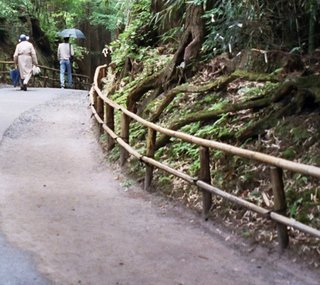
low over the hill
a red moon waxes ...
the empty road ahead
"Moonlighting"
Intimations Pamphlet Series
British Haiku Society Profile 1996
Azami 1997 Special Spring/Summer Edition
Osaka, Japan publication, Issue Editor: Alan Summers
sundog haiku journal: an australian year
sunfast press 1997 reprinted 1998
California State Library - Main Catalog Call Number : HAIKU S852su 1997
Friday, April 14, 2006
haiku poetry residency in Bristol
Tuesday, April 11, 2006
Monday, April 10, 2006
haiku competition @ the Oppo}

cabbage butterfly
in and out of nettlebeds
a girl’s laughter
Alan Summers
Publication credit: The Haiku Calendar 2000 (Snapshot Press)
Anthology credit: The Redmoon Anthology (Redmoon Press 1997)
Award credits:
Highly Commended, Hobo Haiku International Competition (1997)
Runner-up, Snapshot Press Millennium Haiku Calendar Competition (Snapshot Press)
Saturday, April 08, 2006

inter-city train journey -
a rattling window top
shuts itself
Tinywords.com 2004
Tinywords website
Presence #15 (haiku journal) September 2001
Presence haiku journal website
Monday, April 03, 2006
Matsuo Basho's Summer Grasses
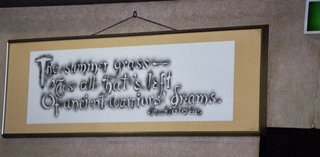
I found this hanging up on a wall in a Japanese cafe:
The summer grass -
'Tis all that's left
Of ancient warriors' dreams.
Inazo Nitobe
No mention of Basho as the author of the original Japanese poem on the poster, or that this is a translation.
When I Googled, I found that Inazo Nitobe, the famous Bushido author, did translate this, and the poster simply leaves off Basho's name as the original author.
Cache:
Daily Yomiuri, Early summer rain falls, temple of light shine
Japanese Reference Site:
Summer Grasses & Samurai Glossary
"Perhaps Bashō wanted to emphasize natural growth as a force of solace and renewal – seeing the summer grasses at Hiraizumi as a reason for hope as well as melancholy; hence “deep” would perhaps seem too dark and brooding a word."
A Dream of Ruined Walls by Paul Rouzer, University of Minnesota
http://simplyhaiku.com/SHv4n2/features/Rouzer.html
夏草や兵どもが夢の跡
Summer grasses,
All that remains
Of soldiers’ dreams
ON LOVE AND BARLEY, HAIKU OF BASHO Matsuo Basho - Author, Lucien Stryk - Translator
The romanised version (romaji):
Natsukusa ya
Tsuwamonodomo ga
Yume no ato
Transliteration:
natsu-gusa ya / tsuwamono-domo-ga / yume no ato
summer grasses (:!) / strong ones’ / dreams’ site
(romanised version with literal English-language translation)
these summer grasses:
the remains of warriors
with their dreams
(English-language translation version by Alan Summers)
Basho http://www.uoregon.edu/~kohl/basho/life.html
summer grasses (:!) / strong ones’ / dreams’ site
(romanised version with literal English-language translation)
these summer grasses:
the remains of warriors
with their dreams
(English-language translation version by Alan Summers)
Basho http://www.uoregon.edu/~kohl/basho/life.html
I feel the verses of Basho’s time can often carry a power beyond their original intention. Matsuo Bashō did what a lot of poets would want to do, and that's to visit important places, including temples and shrines, and old battle scenes. I’ve been to the battle scene this haikai verse refers, and it was still overgrown with grasses, but years later it may now be developed. The poem has often been adopted, although it was not its intention, as an anti-war or certainly not pro-war haiku.
The "warrior's dream" verse can refer to the Fujiwara clan and the samurai soldier/warrior Yoshitsune: https://en.wikipedia.org/wiki/Minamoto_no_Yoshitsune#Rumors_and_legend
In Romanised Japanese (created for English-speaking peoples mostly):
natsukusa ya tsuwamano-domo ga yume no ato
"Tsuwamono (兵) - An old term for a soldier popularized by Matsuo Basho in his famous haiku. Literally meaning a strong person."
Ato can mean “site”; ”ruin," "trace" “track” or “aftermath.”
Yume can mean: "dream," "ambition," or “glory.”
'tsuwamonodomo' is the plural for warriors, so Basho can mean both all the soldiers involved in a specific battle as well as just one major warrior.
Summer grasses:
In actual Japanese, the haikai verse, to a Japanese haikai reader of the time, contains an incredible amount of information because the reader could fill in the gaps.
In contemporary society (both Japan and the rest of the world) we might have to carefully juggle what readers might not know. But then again, with internet access, we need take only 2-3 seconds to learn something nowadays!
The Tragedy of Hiraizumi
Another Summer grasses haiku, and powerful in its context of the dawning of the industrial age in Japan is:
summer grasses—
the wheels of the locomotive
come to a stop
YAMAGUCHI Seishi (1901 - 1994)
translated by Takashi Kodaira and Alfred H. Marks
The Essence of Modern Haiku - haiku by Yamaguchi Seishi
http://www.worldcat.org/title/essence-of-modern-haiku-300-poems/oclc/28530343
https://www.amazon.co.uk/gp/offer-listing/0963433539/ref=tmm_pap_used_olp_sr?ie=UTF8&condition=used&qid=&sr=
A Sample Page of The Essence of Modern Haiku including notes plus Japanese characters and romaji:
Sunday, April 02, 2006
Saturday, April 01, 2006
Japanese street band, with Deborah Russell, American haiku poet joins me, and Visjna McMaster plus refrains from my air guitar!

boom bass-
in out of workmen’s hammers
lesser celedines
These guys were just jamming outside a Japanese shopping centre one night; they didn't play for money, just for the craic.
Deborah Russell, American haiku poet joins me, with refrains from my air guitar!
Visjna McMaster (Croatia) took the photograph.
frogs, the sign of Spring!
Thursday, March 30, 2006
Bristol Poetry Festival opener: "Ripped Words"

Lawrence Pettener (pictured above) and my good self will be opening the Bristol Festival Poetry with our aperif event, called "Ripped Words".
Check out Lawrence's Can of Words
Bristol Poetry Festival 2006
The Oppo} Music Coffee House & With Words are the Festival Openers
"RIPPED WORDS"
6th September 2006 at the Oppo} Music Coffee House 7.30p.m.
Door: £4/3
72 Park Street (Entrance off Park Street Avenue)
Disability access & toilet
Alcohol free, non-smoking venue
(There is a really nice courtyard available for smokers)
Food & snacks menu available till 10pm
The "Ripped Words" poets are Lawrence Pettener & Alan Summers, with music from Anil
Bookings are through the POETRY CAN FESTIVAL BOOKING OFFICE (open shortly)
Wednesday, March 29, 2006
Monday, March 27, 2006
The Hobbs haircut!
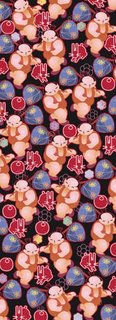
Enjoying the Spring breeze through my Doug Hobbs haircut!
Hobbs Salon, Bristol U.K.
coolness of spring rain
waiting with the bus queue
on newly cut hair
originally published by Mainichi Shimbun, Japan
in their 125th Anniversary haiku contest anthology.
Subscribe to:
Posts (Atom)


